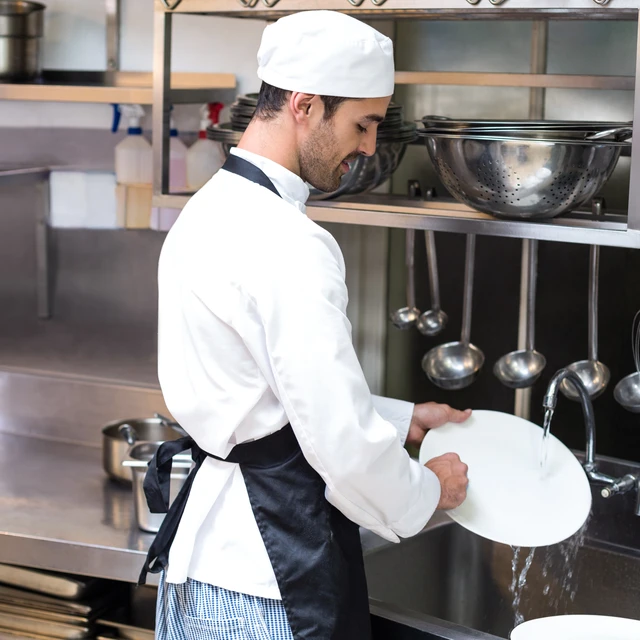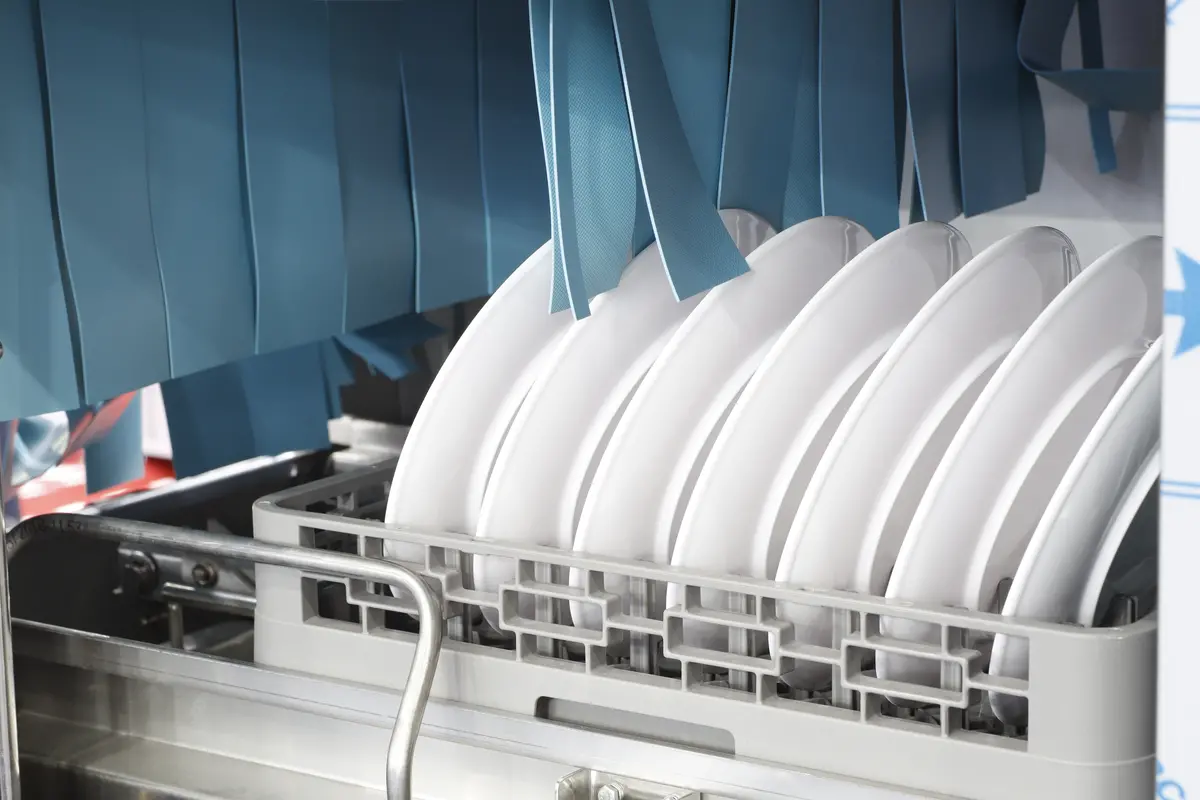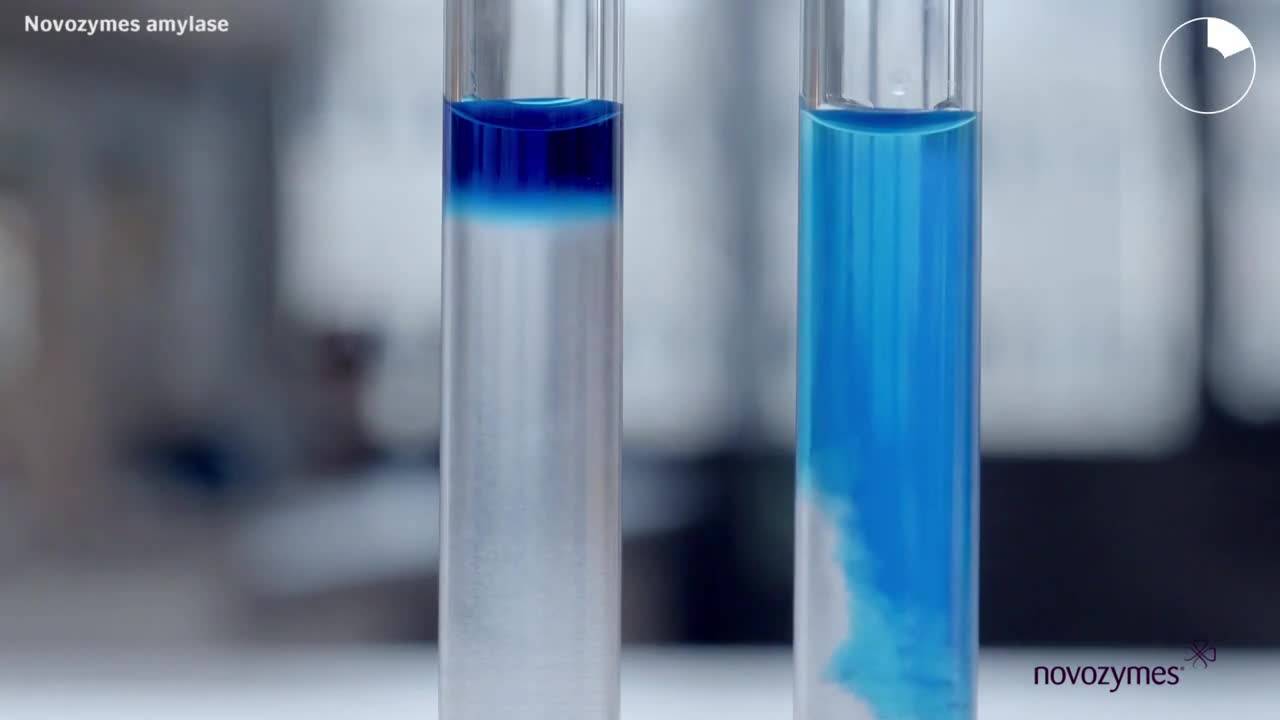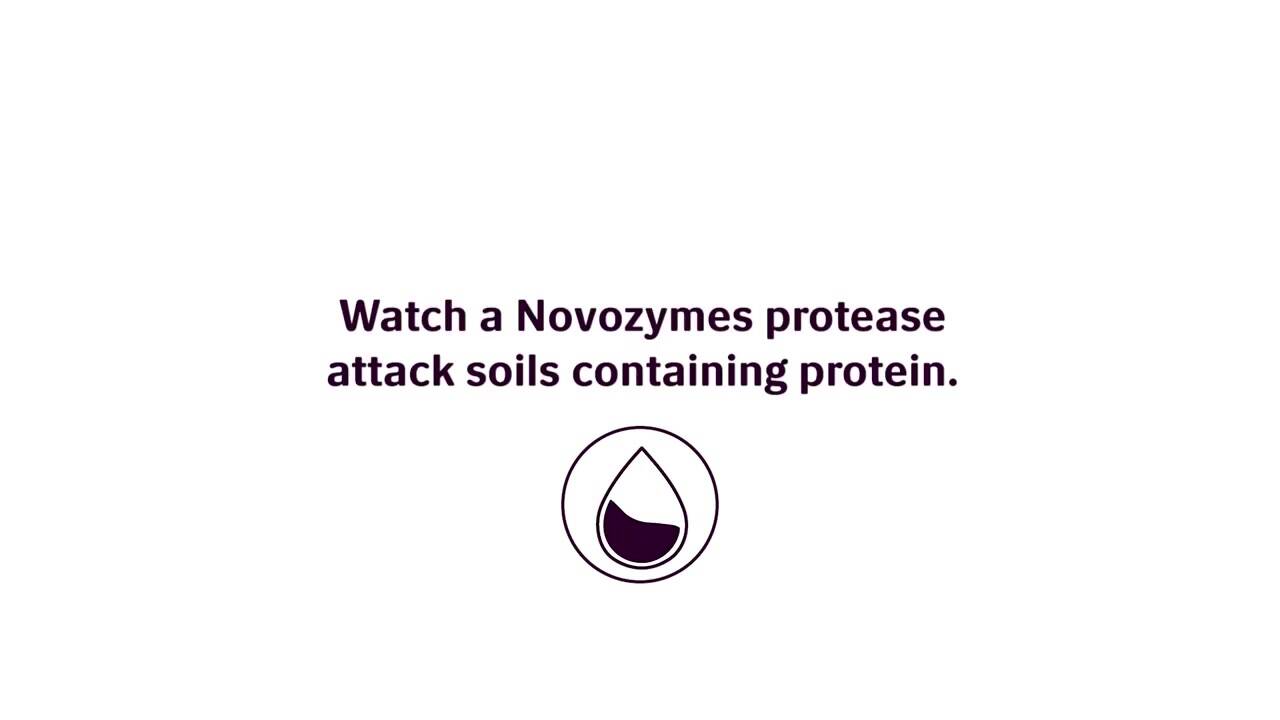The enzymatic difference
Enzymes break down specific soils. For example, proteases break down proteins, amylases break down starches, and lipases break down fats and oils.
The right combinations of these enzymes can break down the soils that are hardest to remove. Leaving a spotless surface that looks good on the table and on the bottom line.
Benefits of enzymatic warewashing:
- Removes even tough food soils
- Minimizes soil residue from hard water
- Enables lower temperature washing (saves energy)
- Contributes to a healthier environment for workers
- Provides a safer clean, powered by nature



